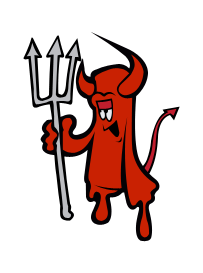A drunk is a drunk is a drunk
Posted Mar 2, 2011 by anonymous | 156 views | 0 comments
The link between alcohol and aggression is well known, but a new study says it's possible to calm a belligerent person under the influence if they're given a rewarding task that challenges their powers of concentration. University of Kentucky psychologist Peter Giancola and student colleague Michelle Corman studied men who were each given three to four vodka and orange juice drinks to raise their blood alcohol level to 0.1, slightly over the legal limit for driving, and those who abstained. In the first part of the study, 48 healthy male social drinkers between 21 and 33 were measured for aggressive responses. Researchers set up a response-time competition and told them they could administer shocks if they won — pressing a computer spacebar as prompted — or receive shocks if they lost. Those assessed as the most aggressive gave the most and longest-lasting shocks. 'Emotions went through the roof,' Giancola told CBC.ca. In the next part of the study, 120 men in the same age group were given a memory test — identified in the study as a distraction — on a computer screen, and told they should focus because they could earn extra money. The lab allowed them to continue administering shocks if they wished. Continue Article The highest level of aggression was in the subjects who drank and were zapped but didn't take part in the memory task, Giancola said. The lowest level of aggression was in those who drank with the added distraction. Those who had no alcohol in both labs fell somewhere in the middle. The sober men were described as cognitively intact, so they could more easily attend to both provocations and distractions, resulting in some level of aggression. 'Drinking restricts our ability to pay attention, so we misbehave once our attention is narrowed to the most salient, attention-grabbing thing,' Giancola said. 'Myopic' focus in drinkers In what's known as the attention-allocation model, 'acute alcohol intoxication disrupts cognitive functioning, thus creating a 'myopic' or narrowing effect on attentional capacity,' the study said. 'When we can only focus on a fraction of what's going on around us, the theory holds, drunks narrow their social vision, concentrating myopically on provocative cues and ignoring things that might have a calming or inhibiting effect,' Giancola said. People drinking too much at a bar, for example, usually are only able to pay attention to whatever is right in front of them and may take what they see as a provocation, Giancola said. They may pay less attention to internal, inhibitory cues telling them what's appropriate, he said. The same goes for subtle, peripheral cues — like the bouncer's disapproval or a scenario that could lead to risky sexual behaviour. It appears that alcohol has the potential to both increase and decrease aggression, depending on where one's attention is focused, the study said.


No comments yet. Be first!